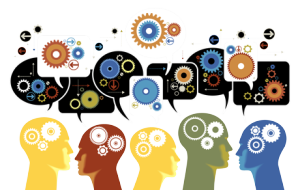You must have read most job descriptions saying “Candidate should have strong inter-personal communication skills” but majority of us don’t understand its actual meaning and importance for an organization. Today, I will try to elaborate its meaning and ways to get better at inter-personal communication skills.
Mostly employers/organizations select candidates who have good interpersonal communication skills. Why? Because such people increases the chance of organization’s growth by keeping good relations with hierarchy and delivering their best.
Firstly, you need to understand what interpersonal communication skills are?
Interpersonal means, relationship/connection between people or ability to get along with people, while communication is the process of sending and receiving messages, ideas, thoughts, etc. and skills is an ability to do something, in other words “expertise”. So when these three things combine together they become skills of communication for maintaining relationship with people around you.
Here are following skills that make perfect set of interpersonal communication skills:
Verbal Communication: It is the process of conveying messages by using vocal words. It is the most important aspect of our lives. But its impact is affected by the selection of words, tone and manner of deliverance, which is called nonverbal communication. Speaking skills are required in almost all job types. It helps employees to maintain a healthy relationship with each other, peer and clients. So, speak carefully and use soft words to communicate.
Non-verbal Communication: These are the signs, gestures, eye contact, body language and facial expressions that sums up the meaning of what you are saying via verbal communication. Research says that verbal communication takes only 10% of the part while 90% part is fulfilled by nonverbal communication in delivering a message. For example, how do you guess if your friend is lying that he/she is ok, when they are actually not? It’s their expression, manner and body language that makes you understand their state, even when they are using positive words.
Nonverbal communication is essential in working place because it gives meaning to your messages face-to-face. For example, if a manager is telling you to complete the given task, he will use certain hand movements and tone of voice to emphasis the urgency and importance of the message.
Therefore, body language and face expressions should be kept in accordance with the message being delivered, to enhance its impact.
Listening: Paying attention to what is being said and grasping its central point is called listening. It’s very important to listen at work because you will be able to understand the process or its significance only after listening to it with full attention. And of course, your deliverance/performance is dependent upon how well you listened to your manager, colleague or boss.
Become a good listener to achieve success. Don’t interrupt when someone is talking, let them finish before you speak or ask anything.
Questioning is the best way of showing the attention. Questions will give positive impact to the speaker and will show your level of interest and listening to the subject. It is also the best way to increase your knowledge and get to know your colleagues.
Team-work: I believe, all above four points are essential to combine in order to work best in team. Getting along with other people is actually quite hard, not everyone is capable of accepting others the way they are and then work with them.
Team-work is also mentioned in mostly job descriptions. Because members of a good team are a greater push towards success of an organization. Follow these key points to become a good team member:
Listen, question, persuade, respect, accept, support and deliver.
Problem Solving: Carefully listening to something also helps you to identify the situation, thus it is the key to become the problem solver. Helping each other at work enhances trust among employees.
You need to critically analyze the situation then think of solutions with neutral (unbiased) mind.
Self-management: one of the toughest skill to learn but once you achieve it, you can achieve anything. Self-management is the process of handling and controlling yourself and your emotions according to the given situation. It plays a vital role in workplaces. For example, someone said something very cruel to you but instead of becoming a hulk (movie character) you can either reply politely or ignore.
These skills doesn’t need much work, there is no rocket science, they will benefit you in achieving success. All they need is little attention and desire to improve them. So, next time when you apply for a job where they demand having interpersonal skills, don’t forget to keep in mind all the above mentioned points.
Share your experience with us, this blog is open for critique and discussion.

